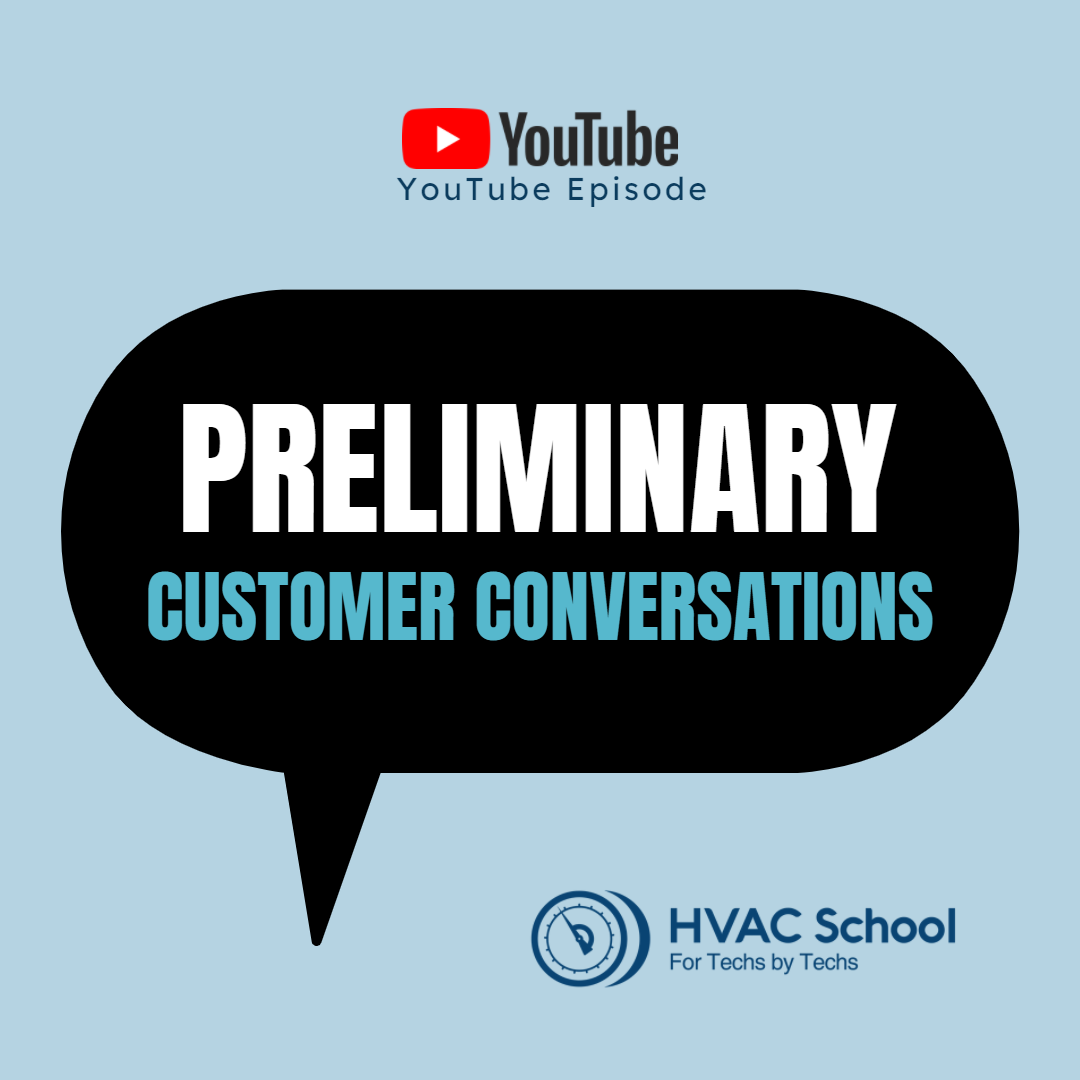Preliminary Customer Conversations
January 12, 2022


On the service side, you’ll want to propose solutions slowly and set time, repair, and payment expectations. Make sure you communicate additional fees clearly and differentiate between the subtotal and grand total. You want to make sure that you and the client are on the same page.
We also perform quoted repairs, which are more involved procedures but still require us to have diagnostic and financial conversations with the customer. The preliminary conversation is also the time to talk about warranties and clarify what the customer’s warranty covers (if applicable).
Overall, we find that it’s easier to have money conversations before the exchange of value happens; if the conversation happens afterward, then you’d be more likely to experience challenges if the customer objects to the price.
System replacements are huge and require lots of conversations before we arrive at the job site. The customer has already had money conversations with other people before the installers arrive. So, installers and techs need to do their homework on the system before they show up; there needs to be communication between the installers and the person who wrote the proposal to make sure there’s NO confusion about the procedure. We need to be educated on the system BEFORE we have the preliminary conversation. The preliminary conversation is also the time to confirm payment and make sure the customer is willing to pay with a check or credit card.
The key to having a productive preliminary conversation is being prepared. By the time you get to the job site, you need to know what you’re doing and let the customer know what to expect on all fronts. We are taking care of the customer, and the preliminary conversation helps us start the long-term customer relationship on the right foot. Give the customer a chance to look at their entire system and ask questions about the procedure or the HVAC system in general.
When we have those conversations about time, we need to plan for the worst. It’s okay if jobs take a long time if they’re supposed to, but we don’t want to underdeliver. Customers tend to worry that something has gone wrong if you take longer than expected. (Plus, the customers are happy when you finish ahead of schedule.)
Remember: the goal of a preliminary conversation is to set expectations for the customer and communicate clearly.
Comments
To leave a comment, you need to log in.
Log In